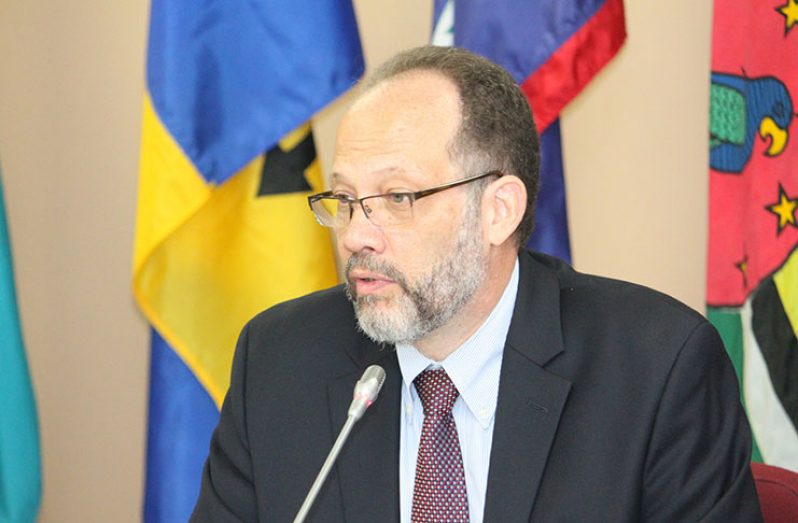Secretary General of the Caribbean Community (CARICOM), Irwin laRocque has the Council for Trade and Economic Development (COTED), within the Caribbean Community (CARICOM), to examine the slow place in which some member states are addressing elements that are critical to the CARICOM Single Market and Economy (CSME).
At the opening of the 44th meeting of COTED here on Thursday, CARICOM Secretary General Irwin LaRocque said while the conference of Heads of Government has been reviewing the CSME and taken not of significant progress in implementation particularly with respect to the legal and institutional measures and mechanisms to support the free movement of goods, services, skills, and cross-border establishment of businesses – there are concerns.
“Our leaders, however expressed concern that some of their decisions had not been complied with. They lamented the fact that some of our Organs and Bodies have failed to meet, to consider critical aspects of the CSME. And items remain much too long on the agenda of the Councils. They also recognised the need for effective consultative mechanisms and addressing capacity constraints at the national level.”
The Secretary General said while they have been discussing issues such as Government Procurement and basic contingent rights – there are aspects of the free movement of skills regime and market access for specific products that require urgent decision. “Even as the Council seeks to address those issues, it faces the challenge of non-compliance with its decisions. The basis of our integration movement is its rules-based nature. Therefore, failure to adhere to the rules, which includes compliance with decisions, poses a threat to the credibility of our Community.”
He said the onus is on COTED to make the required decisions, determine the actions to be taken to fulfill the obligations, and agree on timelines for implementation which we must adhere to. He said the council must send “a clear signal of your determination to make that difference by reaching agreement on the Regional Policy for Micro, Small and Medium Enterprises. It is an opportunity to open the way for the small entrepreneur to benefit from our Single Market.”
He added that the consolidation and advancement of the CSME, apart from its role of enhancing intra-regional trade and economic growth, will also serve as the springboard for seizing our external trade opportunities. “It is important that this Council gives deep consideration to the various international developments that have taken place in recent times, which will have an effect on our major external trading relationships.”
The Secretary General said that one decision is the step being made by the United Kingdom to exit the European Union (Brexit). “Both parties are among our major trading partners. This Council will need to take a decision which would allow us to seek, at a minimum, to ensure that our existing market access to the UK continues after the Brexit process is complete. This is important given that the UK market absorbs approximately 22 percent of our overall exports to the EU.”
He said with global developments, the region must reassess the overall orientation of its external trade. “The development of new relationships and increasing utilisation of our existing trade agreements assume even greater importance.” Concerning trade agreements, LaRocque said the Community is party to a number of trade agreements, some of which have not been regularly serviced in recent years. He said in recent months talks been held with Cuba and the Dominican Republic in recent months to enhance these trade agreements.
“A decision will have to be taken on how to address the Region’s other trade agreements and negotiations, along with the resources that should be dedicated to doing so. As we seek to maximise trade opportunities both domestically and internationally, the provision and analysis of relevant data is an important element.”
He said COTED has been provided with a review of the performance of intra-regional trade in goods and this is an essential exercise. “It must be expanded to include our external trade. And it must become a regular feature of the COTED agenda.” He also said the member states must assist in this regard by timely provision of the relevant trade data to the Secretariat in order for a thorough analysis to be provided so that it becomes even more meaningful as a tool for decision-making. (CMC)




.jpg)










